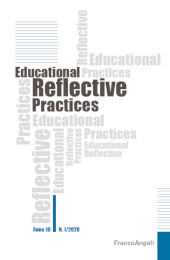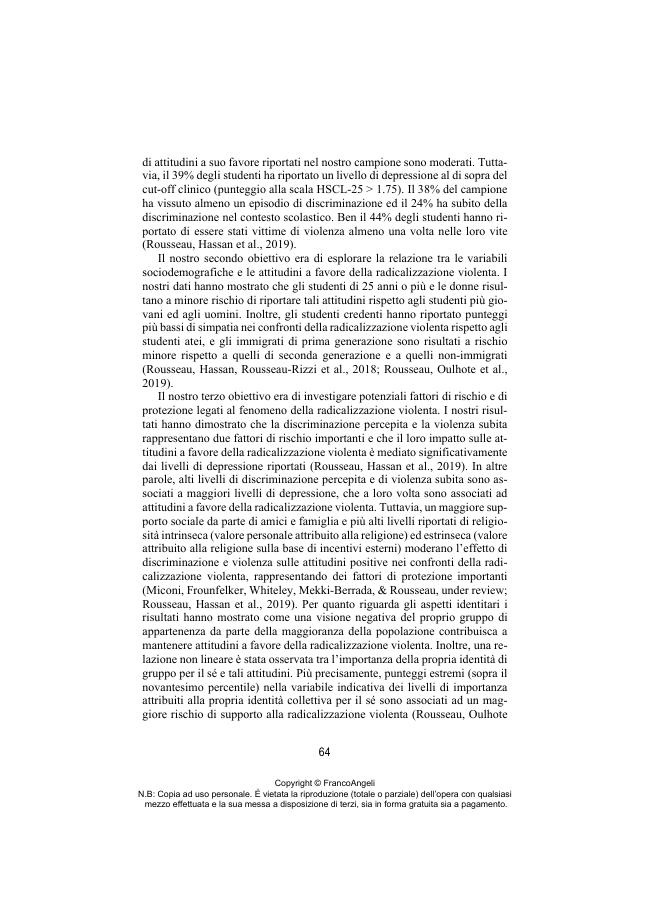Vivere insieme in contesti di polarizzazione sociale : fattori di rischio e di protezione in un campione di giovani studenti canadesi
55-73 p.
Xenophobic sentiments, discrimination and hate crimes and incidents are on the rise across the globe. Although the relation between attitudes and behaviors is not linear, population-wide attitudes toward legitimizing some forms of violence may represent a risk factor and fuel social polarization, which can in turn facilitate the use of violence in the name of a radical ideology among vulnerable individuals. Thus understanding the risk and protective factors associated with positive attitudes towards violent radicalization is an important starting point to inform effective prevention programs. However, scant empirical studies investigated positive attitudes towards violent radicalization among young people, who are at increased risk of violent radicalization.
In 2015 a sample of students attending 14 colleges in Quebec (74% aged between 16-21 years, 71% women) participated in an online survey aimed to investigate positive attitudes towards violent radicalization and the associated risk (i.e., discrimination, exposure to violence, depression, polarized collective identity) and protective factors (i.e., positive future orientation, social support, religiosity). Two years later, the same online survey was conducted in six colleges, to examine at a preliminary level the evolution of the phenomenon across time. The present paper summarizes the results of this research project with the final objective of improving our understanding of violent radicalization among adolescents and early adults, to identify potential avenues for prevention and intervention. [Publisher's text].
Ist Teil von
Educational reflective practices : 1, 2020-
Artikel aus derselben Ausgabe (einzeln erhältlich)
-
Informationen
ISSN: 2279-9605
THEMENBEREICHE



